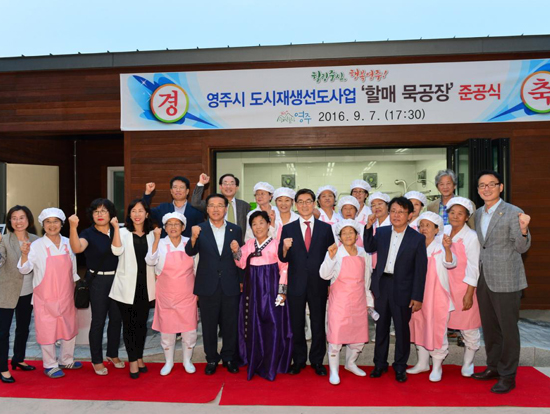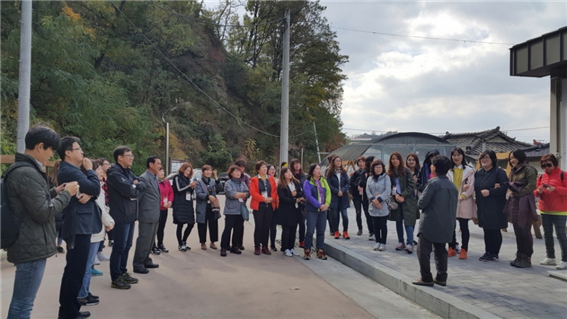Age-friendly Urban Regeneration Project: Yeongju’s Grandma Muk Factory
Involving as it does nationwide demographic shifts, industrial decline, and ageing urban infrastructure, the phenomenon of urban decay extends far beyond South Korea. Global setbacks to urban vitality bring about societal and economic consequences such as low economic growth, low birth rates, youth unemployment, and a decrease in labor productivity. In response, the Korean government initiated an urban regeneration project in 2013 with the aim of reinvigorating urban vitality and strengthening local capacities.
Korea’s urban regeneration efforts go beyond the physical structure of the city; they involve a comprehensive overhaul of economic, social, cultural, and welfare services, utilizing local resources. The essence of the project lies in embracing each city’s distinctive identity, amplifying local values, and ultimately cultivating positive community identities for sustainable urban growth. This report introduces the success story of Yeongju City’s Grandma Muk Factory, a prime example of age-friendly urban regeneration.

Guseong Village in Yeongju City emerged naturally as a settlement for railroad workers when the central railway line was relocated due to the 1961 Great Flood in Yeongju. Guseong Village gradually declined and turned into a super-aged community with a staggering 73.9% of older individuals living alone, 35% of the population with no income, and 29.3% of residents receiving basic livelihood support. As part of the urban regeneration initiative, Yeongju City directed its efforts toward stimulating urban vitality in Guseong Village, which resulted in the establishment of the Grandma Muk Factory in September 2016.
The Factory is a social cooperative formed by 16 grandmothers, with an average age of 78, who have lived together in Guseong Village for over 50 years. When the urban regeneration plan was launched, these grandmothers proposed a business around muk (a traditional Korean food involving jelly from grains, acorns, and so on). Starting with muk as their main product, they then diversified into also producing tofu from Yeongju beans. These older residents of the neighborhood have been leading the urban regeneration project with self-reliance, participating in publicity events at local government offices and local festivals to promote their project.
The daily maximum production capacity of the 16 seniors is 100 portions of both muk and tofu. Despite being relatively small in scale compared to large factories, the Grandma Muk Factory’s handmade products using locally sourced raw ingredients have gained nationwide recognition for their rich flavor and unique appeal. Garnering annual sales surpassing 90 million KRW, the Factory increases its impact by channeling a segment of its profits to support home repairs in vulnerable residential areas, and meal-sharing programs for older individuals living alone in the village.
The Grandma Muk Factory has gained high praise from local government bodies nationwide as an active urban regeneration initiative. Recognized with various awards, including the Best Village Enterprise Award, the Outstanding Balanced Development Case Award, and the Local Government Policy Award, the Factory has established itself as the best exemplary model for urban regeneration. Every year, over a thousand urban regeneration stakeholders from across the country visit the Factory to learn from its success.

But beyond its contribution to urban regeneration, Yeongju City’s Grandma Muk Factory holds profound significance for older persons’ rights. Older individuals often face limited opportunities for social engagement within their local communities. The Factory provides an empowering environment where older persons can nurture their capacities and engage actively with their community. In this context, the Grandma Muk Factory serves as a beacon of inspiration, promoting not only economic, social, physical, and environmental revitalization, but also self-driven development by the local elderly population, making it a model to be emulated by other local authorities.
Haeri Kang (haerikang@asemgac.org)